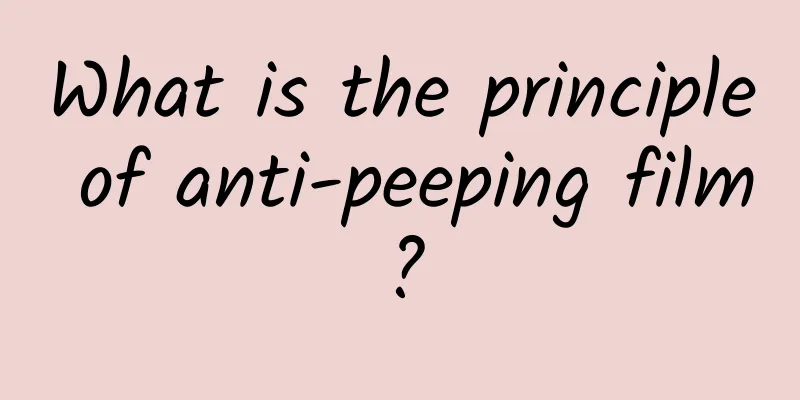What is the principle of anti-peeping film?

|
Privacy screens work in a similar way to blinds. Venetian blinds block the outside view while letting in light through the concave and convex surfaces of the blades and the rotation of the blades. The privacy screen reduces the structure of the Venetian blinds by tens of thousands times, and controls the viewing angle of the screen through a parallel arranged grating structure. The spacing of the gratings is generally between 0.02-0.1mm. When light is incident vertically on the privacy film, it can pass through unimpeded; as the angle of incidence of light increases, the light is gradually blocked by the shutter structure, and the amount of light passing through decreases accordingly. Therefore, only the user facing the screen can receive enough light to see the screen clearly. Bystanders who are at a certain angle to the screen receive weaker light and it appears to be pitch black. Source: Institute of Physics, Chinese Academy of Sciences by Lychee Jelly The pictures in this article with the "Science Popularization China" watermark are all from the copyright gallery. The pictures are not authorized for reprinting. |
<<: New discoveries! These 4 new species are revealed for the first time!
>>: Why do many people feel pain all over their body after the age of 50? Doctors explain the reason
Recommend
4 strategies for Xiaohongshu brand promotion!
With the end of the Spring Festival, the topic of...
Zero-starting teaching: APP first release skills + omni-channel
It is not easy to make a good product APP, but it...
After this age, muscle loss will occur quickly! Many people don’t pay attention until they fall, break bones, become unable to take care of themselves…
There is a saying that "saving money is not ...
Crab Friends Club "Tik Tok Traffic Drainage-Interception Tutorial" Super Simple Drainage Method
Training course video content introduction: The D...
The most comprehensive e-commerce operation plan for you!
What should a qualified e-commerce operation look...
WeChat public account interception technology, simple operation to earn 670 yuan a day!
It's the Spring Festival holiday, but people ...
VR Joint Laboratory Established and Developer Competition Winners Announced Dell Unveils VR Industry Ecosystem
Dell has joined hands with four partners, namely,...
Video promotion tips: A hit? Just 15 seconds is enough!
Why are more and more brands investing in short v...
Beware of scammers! These 8 diseases cannot be cured once contracted, and trusting folk remedies can be fatal
Once they are diagnosed with a disease, many pati...
Hot discussion among netizens! Is oxygen inhalation more refreshing than drinking coffee? Experts say so →
gossip: Using an oxygen concentrator or oxygen ta...
Event operation and promotion: How to plan the core gameplay?
As usual, let me give you a definition: Operating...
[Jingang Talks Finance] Jingang | Band 42 Chapter "Gold" (Upper, Middle, Lower)
[Jingang Talks Finance] Jingang | Band 42 Chapter...
Event promotion: A collection of 54 event cases for the 2019 Spring Festival!
During the Spring Festival, major Internet platfo...
Turquoise-colored emerald kudzu blooms and competes with bird of paradise flowers
South China Botanical Garden is full of spring in...









